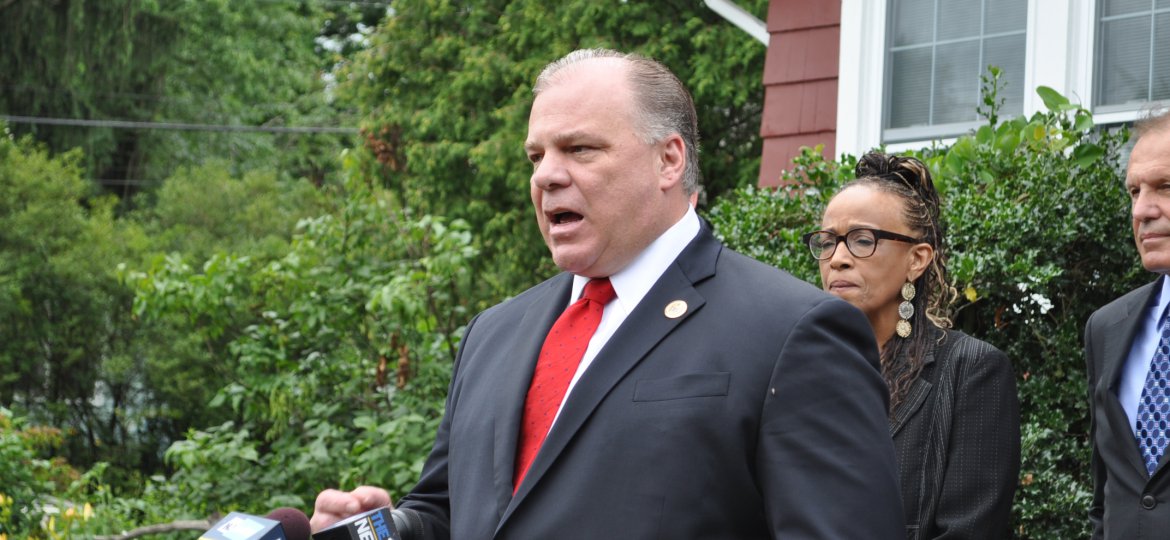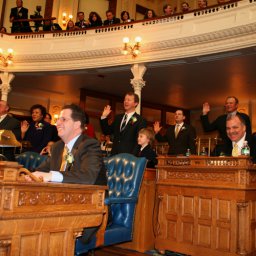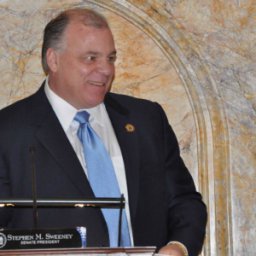
By Steve Sweeney
In New Jersey, the economic burdens for middle-class families and working people continue to make life hard. Property taxes continue to go up. We still drag behind the rest of the nation in job creation. State revenues are lower than expected. And economic growth falls behind other states. Rhetoric about belt-tightening in the face of hard times has gone on for too long. If we are truly going to make New Jersey an affordable place to live, it’s time we acknowledge and do something about this one simple fact: New Jersey has too much government.
That is why I have introduced shared services legislation that would result in taxpayer savings through the elimination of government redundancies. It would do so by creating concrete fiscal consequences for local government entities that refuse to enter into sharing agreements that would save money.
The legislation would require New Jersey’s Local Unit Alignment, Reorganization and Consolidation Commission to study municipalities to determine where taxpayer dollars could be saved through sharing of services. If the study shows that savings can be realized through sharing services for two or more local governments, and the state treasurer verifies the savings amount, the question of whether to share the servicemay beput to a public referendum in all municipalities involved. Any municipalities that strike down the public question or refuse to implement the shared service would lose state aid. The state aid cut would equal the amount they would have saved had they shared the service. If one town approves it but another denies it, only the town that denied it would lose aid.
The taxpayers of New Jersey simply can’t handle their property tax burden anymore. Because property taxes aren’t based on income or wealth, they place a disproportionate burden on middle-income families and working people. That’s why property taxes are called “the tax without a conscience.”
It is well past time to do more than talk about it and do more than take small steps and really do something to provide the incentives needed to get us moving in the right direction on shared services. Simply put, if a town can save money through sharing services and decides not to do so, they are going to lose out on state aid. If you do not want more cost-effective government, than the taxpayers of New Jersey should not be footing the bill. I know this concept is tough medicine to swallow. For years we have heard talk about the need to share services, but we haven’t seen enough action. We have tried the carrot approach when we offered state aid to encourage sharing services, but it simply hasn’t done enough.
I realize many mayors will say this is another example of Trenton sticking its nose where it doesn’t belong. I know that sentiment because I ran a local government for over a decade. When I was freeholder-director in Gloucester County, we achieved $30 million in savings through shared and regionalized services. That included such countywide services as 911 police/fire/EMS dispatching, tax assessors, stormwater management, trash disposal savings, animal control, deer carcass removal and health department inspections. The shared services implemented between the county and its 24 municipalities save an average 18 cents off the tax rate. These are real savings that have real impacts on your municipal budget and on the taxpayers.
The law I sponsored that provided financial incentives to encourage towns to share services has been helpful, but more needs to be done. We need to push towns to act. That is what my legislation would do. It will also make it easier for municipalities to reorganize civil service employees, creating greater efficiency.
I have heard concerns that this legislation will unfairly penalize towns and counties that already share services. That is highly unlikely. LUARCC’s function is to examine those areas of the state that could be doing more with less. The places that have been reluctant to change for the benefit of their taxpayers are where those efforts will be centered. Communities that have done their part to share services have little to worry about.
Moreover, LUARCC is not going to show up and simply demand towns start sharing. It is going to carefully analyze the issue, working with all municipalities involved to gather as much data and make as informed a decision as possible.
Sharing services is about efficiency. It is about making government work better at a cheaper price. Together, we can do this without losing our sense of community. For too long, home rule has dominated our way of thinking and prevented real savings. The times we live in simply don’t allow for that kind of thinking anymore.
My legislation has passed the Senate and I hope it will pass the Assembly and be signed into law by the governor before the end of the current legislative session. It is time that we finally reduce the size and scope of government in New Jersey. It is time to make this legislation law and if it doesn’t happen in lame-duck, I can assure you that S-2 will become S-1 next session.
Read Senate President Sweeney’s editorial in the Courier Post here.



